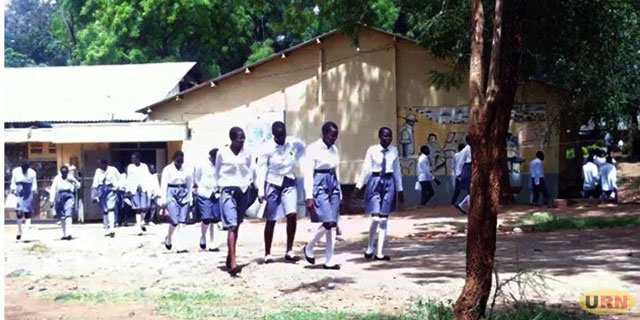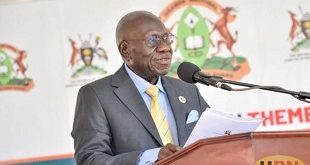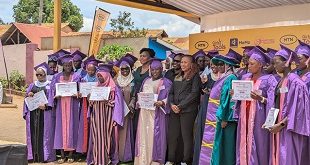
Kampala, Uganda | THE INDEPENDENT | Parents hoping for a reprieve from the ever-skyrocketing school fees in public and government-aided schools will have to wait. The government has in the past promised to increase funding to the education sector so that it gradually offers free education.
While universal primary and secondary education currently exists in Uganda, some children are still denied access due to additional charges for uniforms, lunches, and PTA contributions. Achieving true free education would eliminate these barriers and ensure every child has the opportunity to attend school.
The elimination of all school fees in public schools was a cornerstone of the ruling party’s 2021-2026 manifesto.
However, this planned increase in funding towards free eduction was not reflected in the 2024/2025 budget presented by the Finance Minister, Matia Kasaija on Thursday.
According to reports, a budget of Shs1.48 trillion was proposed to realize the pledge and it was anticipated that some funds would be allocated beginning with the financial year 2024/2025 to 2027/2028.
The government promised to allocate 309.16 shillings billion for the first year (2024/2025), which was expected to roll out free primary education. The promised funds were intended to tackle various challenges within Universal Primary Education (UPE)
Had the funds been allocated, the Ministry of Education and Sports aimed to address several key issues, including the critical teacher shortage.
The Ministry planned to recruit 78,888 teachers to achieve a 40:1 student-teacher ratio, particularly in understaffed schools that frequently hire part-time teachers, which leads to additional fees for parents.
There were also plans to construct new classrooms, rehabilitate those in poor condition, provide more instructional materials, and potentially increase capitation grants, among other initiatives.
Many parents, like Moses Ssekindi from Wakiso district, were hopeful for relief. However, the government’s ongoing budget process delayed the implementation.
“This has been a recurring promise whenever free education is demanded,” Ssekindi told URN in an earlier interview. “Hopefully, it will be included next term or even next year.”
Ssekindi’s wish is put on hold as the promised funds are absent from the recently passed budget.
This broken promise adds to a long list of pledges made by the president toward truly free and accessible education.
According to the Uganda National Survey Report 2019/2020, a significant portion, 62.3%, of school dropouts are attributed to the affordability of education costs.
It is suggested that increased financing for Universal Primary Education (UPE) and Universal Secondary Education (USE) could alleviate the financial burden on parents and guardians, consequently reduce school dropouts.
The Uganda National Survey Report of 2019/2020, it was found that 62.1% of school dropouts occur because they could not afford the education costs.
As per Finance Minister Matia Kasaija’s budget speech, the government has earmarked approximately 2.497 trillion shillings for the education sector.
The funds are directed towards five key priority areas, which include supporting the implementation of the new lower secondary curriculum, the operationalization of 110 seed secondary schools, and the completion of 27 others under the UGIFT program.
The budget provided funds for the construction of 60 new secondary schools and the expansion of 61 existing secondary schools under the Uganda Secondary Education Expansion Project.
Kasaija also provided funds toward loans to 5,192 degree and 1,125 diploma students who are on the government-funded loan scheme, both continuing students and new beneficiaries.
The Minister said the government will take over Bunyoro and Busoga Universities for inclusive and equitable access to university education. With Busoga and Bunyoro on board, the number of public universities will increase to fourteen.
State Minister For Primary Education, Dr Joyce Kaduccu told URN that the budget missed funds for completely free education because there were other equally pressing priorities.Kaduccu said her ministry could ask for a supplementary budget to bridge the gap.
“(Ministry of) finance has requested us to defer this money to one more year, but nevertheless, we are going to request for a supplementary budget along the way, because this is already a pledge to the people of Uganda and we are very hopeful this is going to be a game changer, especially to this huge population of children in primary level,” said Kaduccu. .
Kaduccu explained that the allocation of funds was influenced by the need to implement the lower secondary curriculum and the preparations for the upcoming Africa Cup of Nations (AFCON).
Angella Kasule Nabwowe, the Executive Director of Initiative for Social and Economic Rights- ISER, analyzing the budget, highlighted that several areas within the education sector remain either unfunded or underfunded.
Nabwowe explained that although the Ministry aimed at providing financial assistance to 100 secondary schools and 100 primary schools with 30.2 billion shillings and 6.4 billion shillings respectively, the allocated funding is inadequate.
The Ministry of Education planned to allocate 100 billion shillings for the rehabilitation of 200 primary schools but no funds were allocated in the 2024/2025 budget. Reports have found that 40% of public primary schools are in a state of disrepair.
Despite Uganda’s commendable strides in education aligned with national policy, there remains a persistent concern regarding the disproportionately low share of the national budget allocated to the education sub-program. This concern is exacerbated by the continual growth in the population of learners each year.
*****
URN
 The Independent Uganda: You get the Truth we Pay the Price
The Independent Uganda: You get the Truth we Pay the Price


